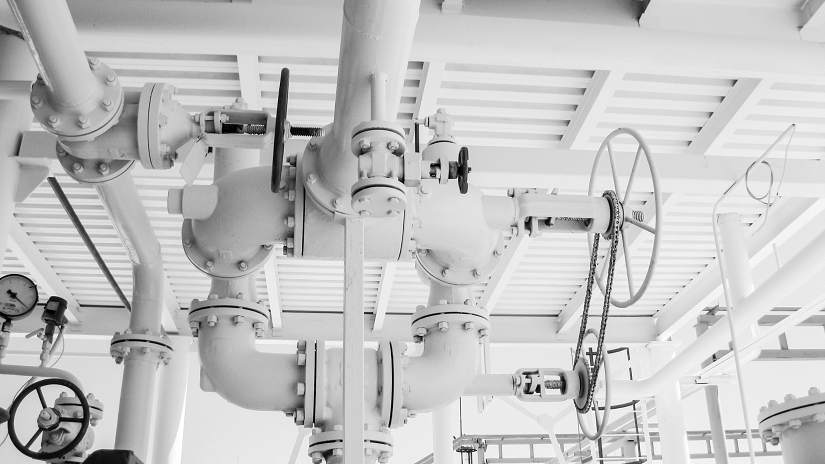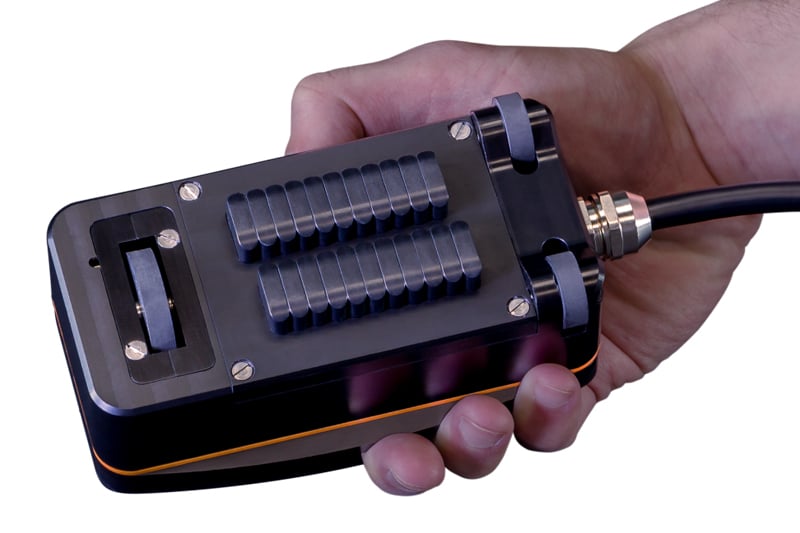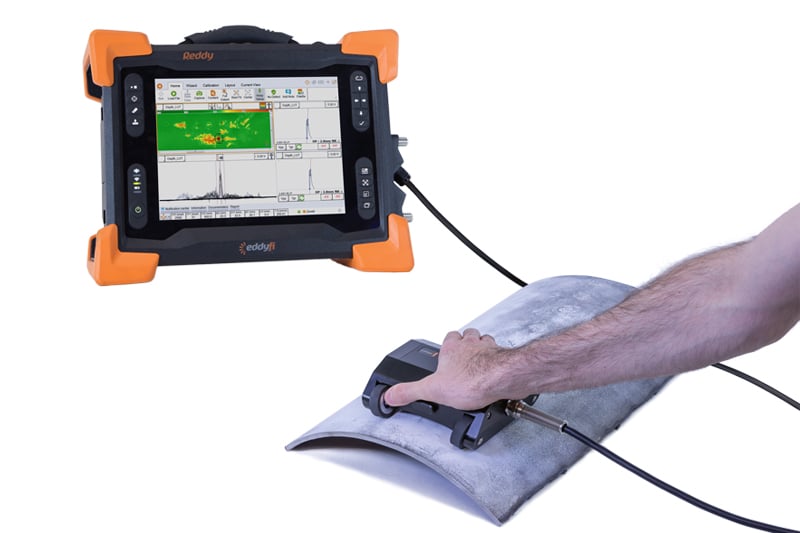Pressure Vessel Safety With The Sharck Probe

The demands on pressure vessels are huge. Many of these vessels perform critical functions and operate under extremely harsh conditions and at pressures that are substantially higher or lower than the ambient pressure which is why they’re subject to strict requirements for design, testing, approval and inspection.
These laws aim to protect public safety and the safety of those in the workplace, because when a pressure vessel or a component fails, the consequences of flying projectiles or the release of materials, particularly hazardous ones, can be extremely serious. Regular and rigorous testing is required to ensure that these vessels, and particularly their critical components (eg welds), meet safety and performance standards.
Pressure vessels include autoclaves, compressed gas cylinders, compressors (including refrigeration), distillation towers, pressure reactors, pressure piping, boilers and heat exchangers. They are commonly used in the chemical processing and petroleum refining industries where they endure some of the most demanding conditions of any industry.
Traditionally, wet magnetic particle testing (MT) has been used to test refinery pressure vessels and although it is a proven non-destructive testing (NDT) technique, it does have some shortcomings. The process of using particles that are suspended in a water or oil solution to test a surface is messy and time-consuming, plus surface preparation and post-inspection cleaning are required. MT also doesn’t allow the depth of defects to be measured which can be problematic when testing critical components.
Enter the innovative new Sharck probes from the leaders in global electromagnetic inspection technologies, Eddyfi.
Image Source: Eddyfi Technologies
The Sharck probes have been specifically designed for inspecting for cracking in carbon steel using tangential eddy current array technology. Unlike conventional inspection techniques, these probes can locate cracks, measure their length and size them as deep as 7mm beneath the surface – plus they don’t require any surface preparation (eg the removal of paint or protective coatings).
And when it comes to testing pressure vessels in refineries, the advanced Sharck probe delivers results which are as reliable as those achieved through wet MT without any of the shortcomings.
Here’s how it works.
The carbon steel welds of refinery pressure vessels are prone to numerous types of cracking in their different zones (toe, cap and heat-affected zones) and are therefore critical components which require accurate, reliable and thorough testing.
The Sharck probe was specifically designed for refinery pressure vessels to measure the length and depth of cracks without any surface preparation. It does this by monitoring liftoff (as opposed to cancelling it out) and compensating for it.
The probe has special spring-loaded ‘fingers’ which adapt to the geometry of the weld crown and are able to scan the cap, toe and heat-affected zones along the weld in a single fast pass (up to 200 mm/s). The unit also has a built-in decoder enabling the precise positioning of any defects.
Field testing found that the probe and wet MT both detected the same longitudinal cracks, but the probe was able to measure the length of these as well as detect transverse cracks.
Image Source: Eddyfi Technologies
This demonstrates EddyFi’s success in developing an improved solution to replace wet MT on pressure vessel carbon steel welds and has positive ramifications for many different industries in the crucially important field of NDT. The company has developed a family of Sharck probes with various capabilities including the Sharck fillet weld probe and the Sharck butt weld probe.
In a nutshell, the benefits of these innovative Sharck probes include:
- Productivity gains – minimal surface preparation and post-inspection clean up
- Improved reliability and probability of detection (able to detect previously undiscovered defects)
- Fast and accurate positioning, sizing and depth of defects
- Less dependence on the operator
- Advanced software offers extensive data recording, analysis and archiving capabilities
If you have pressure vessels at your operation and want to find out more about innovative, cost-effective and reliable solutions for inspection and testing, talk to the experts at Nexxis. We are a leading Australian specialist in custom-designed technical equipment solutions which meet industry’s changing needs. Contact our professional team or discover their our range of NDT tools, including the Eddyfi Sharck HR Probe and other Eddy Current Inspection equipment at nexxis.com.


